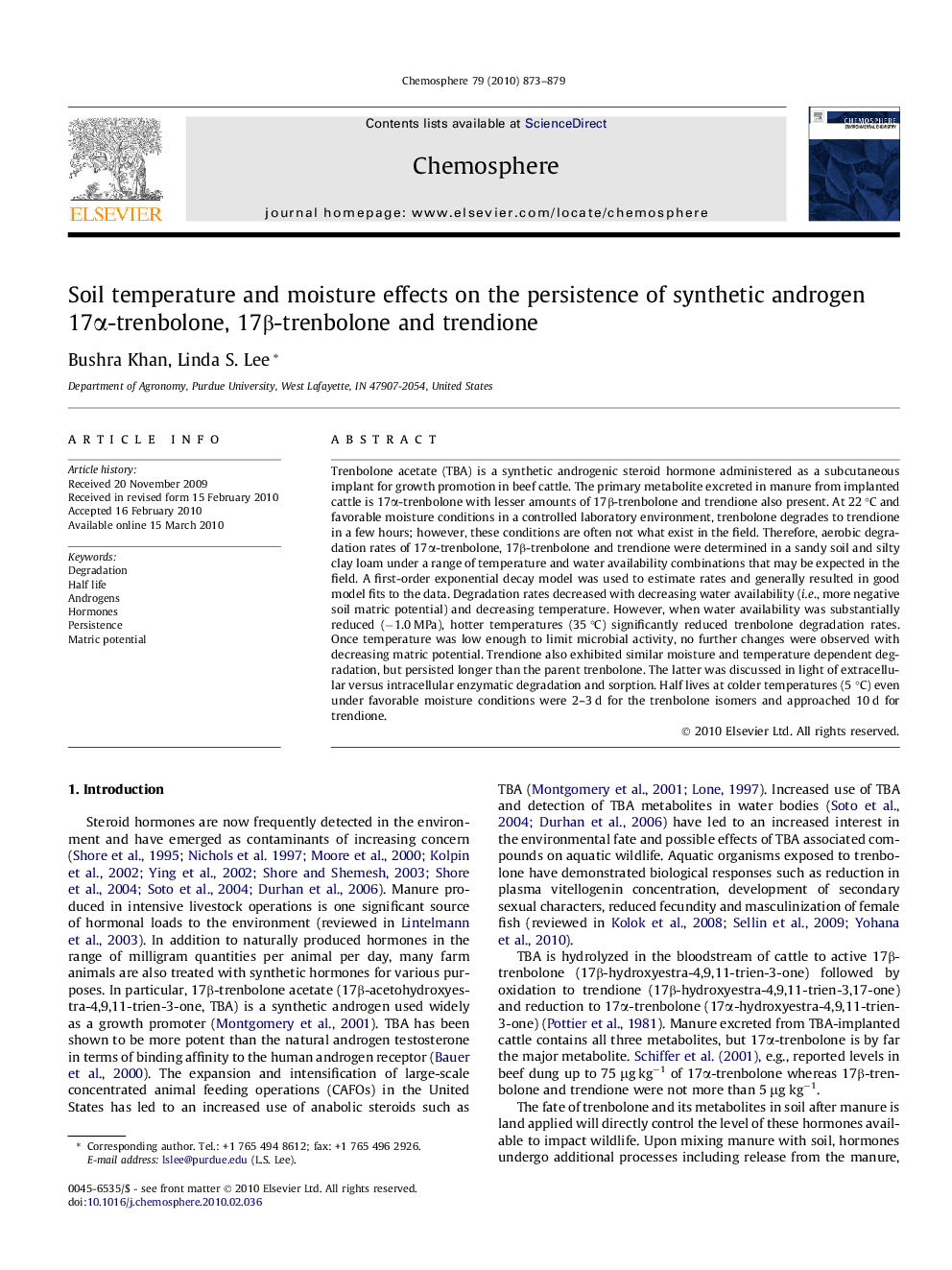| Article ID | Journal | Published Year | Pages | File Type |
|---|---|---|---|---|
| 4411779 | Chemosphere | 2010 | 7 Pages |
Trenbolone acetate (TBA) is a synthetic androgenic steroid hormone administered as a subcutaneous implant for growth promotion in beef cattle. The primary metabolite excreted in manure from implanted cattle is 17α-trenbolone with lesser amounts of 17β-trenbolone and trendione also present. At 22 °C and favorable moisture conditions in a controlled laboratory environment, trenbolone degrades to trendione in a few hours; however, these conditions are often not what exist in the field. Therefore, aerobic degradation rates of 17α-trenbolone, 17β-trenbolone and trendione were determined in a sandy soil and silty clay loam under a range of temperature and water availability combinations that may be expected in the field. A first-order exponential decay model was used to estimate rates and generally resulted in good model fits to the data. Degradation rates decreased with decreasing water availability (i.e., more negative soil matric potential) and decreasing temperature. However, when water availability was substantially reduced (−1.0 MPa), hotter temperatures (35 °C) significantly reduced trenbolone degradation rates. Once temperature was low enough to limit microbial activity, no further changes were observed with decreasing matric potential. Trendione also exhibited similar moisture and temperature dependent degradation, but persisted longer than the parent trenbolone. The latter was discussed in light of extracellular versus intracellular enzymatic degradation and sorption. Half lives at colder temperatures (5 °C) even under favorable moisture conditions were 2–3 d for the trenbolone isomers and approached 10 d for trendione.
